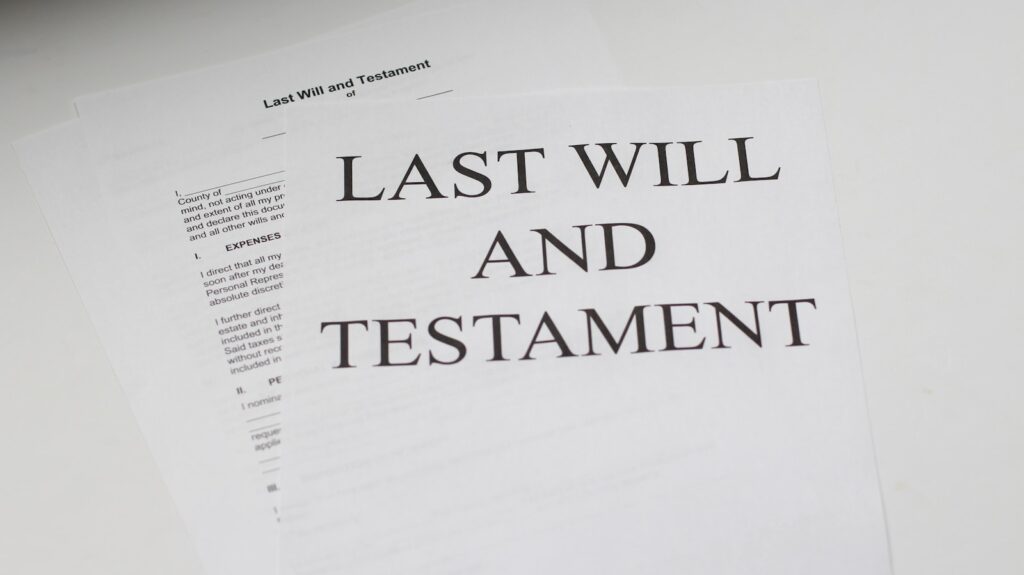
The phrase “last will and testament” might sound antiquated. Yet, it represents a sophisticated piece of personal engineering—a meticulously crafted mechanism to extend your influence and protect loved ones after you’re gone. It’s not about grand estates, but the ingenious application of forethought to life’s most inevitable transition. A well-constructed will ensures your intentions are legally honored, much like an engineer designs systems to perform, providing clarity and direction when needed most.
Drafting a will remains a profound act of intentionality. It’s a proactive step, building a resilient framework around your accomplishments and safeguarding assets. Crucially, it provides peace of mind for your family. This document articulates your values, fortifies relationships, and ensures your voice resonates through the future with precision and care. Consider it the ultimate blueprint for your legacy, detailing how every component of your life’s work should function in your absence.
This guide delves into the practical engineering behind a last will and testament. We’ll demystify its complexities, revealing fundamental principles, critical components, and vital steps to construct a robust legacy plan. Far from a daunting chore, creating a will is an empowering act, a testament to your proactive spirit, and an invaluable gift to those you cherish most.

1. **The Crucial Role of a Last Will and Testament**A last will and testament is a legal document, an engineered set of instructions detailing how your property and responsibilities are managed after death. It covers financial assets, real estate, and personal items. For parents, it’s essential for naming a guardian for minor children, aligning their future care with your wishes. Without this document, state laws and probate courts often make decisions misaligned with your desires, causing discord for loved ones.
A will provides control and peace of mind. By outlining wishes, you establish clear directives, minimizing guesswork and disputes among beneficiaries. This clarity saves your family time, reduces legal fees, and prevents emotional conflict during a difficult period. It’s a proactive safeguard, a legal mechanism protecting your estate and family harmony.
The concept of wills dates back to Ancient Roman times, reflecting a human desire to dictate property transfer. Many 19th-century English requirements remain legal mandates today, underscoring the document’s enduring utility. A properly prepared will is a sophisticated instrument, ensuring protection for your assets, spouse, and heirs.
Read more about: Architectural Digest Presents: Inside Jeff Bezos’s Multi-Million Dollar Real Estate Empire

2. **Understanding Who Needs a Will and Why**”Do I need a will?” applies broadly: “Almost everyone can benefit.” It’s not just for the wealthy, but a practical tool for anyone wanting a say in their property and responsibilities after death. Whether assets are modest or extensive, a will ensures your voice is heard, guiding your legacy according to your convictions.
Dying without a will, or “intestate,” carries substantial risks. State intestacy laws automatically dictate asset inheritance, often leading to undesirable outcomes. Estranged relatives might inherit, while close friends receive nothing. Critical probate delays can tie up assets. These scenarios inflict significant stress and conflict upon your family.
Conversely, a will offers unparalleled control and peace of mind. You name specific beneficiaries and appoint an executor—a trusted individual to manage your estate. For parents, designating guardians for minor children provides immense comfort. It’s an act of love, sparing your family from guesswork and disputes, offering clarity and direction during an emotionally tough time.
Read more about: Saving Our Stories: A Deep Dive into America’s 8 Most Endangered Historic Places of 2025

3. **Key Steps to Crafting Your Will**Creating a will can seem daunting, but breaking it into clear steps makes it accessible. Whether choosing online services or an attorney, a systematic approach ensures your final wishes are comprehensively captured and legally enforceable. It’s methodical construction, akin to building a robust machine from individual components.
The first foundational step is a thorough asset inventory. This includes homes and bank accounts, but also investments, vehicles, personal belongings, and vital digital assets. A comprehensive list prevents overlooking any valuable estate component, providing a complete picture for distribution and setting the stage for accurate instructions.
Next, choose your beneficiaries, deciding who inherits each part of your estate. Select an executor—a trusted person to manage your estate. For parents, naming guardians for minor children is pivotal. Finally, meticulously write and sign the will according to state rules, store it safely, and update it periodically for life changes.
Read more about: Beyond Survival: 12 Critical Lessons on Resilience from Those Who Conquered Crisis

4. **The Essential Elements Every Will Must Contain**A well-drafted will is a masterpiece of clarity, designed to prevent ambiguity after your passing. Its effectiveness hinges on key components, each serving a vital function. These elements are the gears and levers making the system operate smoothly, ensuring your intentions are unmistakably conveyed and executed. Understanding them is paramount for a robust will.
Crucially, it must clearly designate assets and their intended beneficiaries. This involves a precise list of your property—real estate, financial accounts, personal items—and explicit instructions for inheritance. Vague phrases like “divide equally” can cause disputes. Detailed, unambiguous instructions are the hallmark of a strong will, preventing conflicts and ensuring your generosity is directed as intended. This specificity eliminates friction in distribution.
Another critical element is the executor’s appointment, the designated manager of your estate. This can be a spouse, family member, friend, or lawyer. For parents, guardianship provisions are indispensable, naming those who should care for minor children. A will also includes instructions for handling debts, funeral costs, or taxes. Special instructions for unique situations, like charitable donations, ensure every nuanced wish is honored, making your will a truly comprehensive legacy expression.
Read more about: Gearheads, Start Your Engines! These 12 Vintage Icons Still Define Automotive Perfection

5. **Navigating the Legal Landscape: Requirements for a Valid Will**Creating a valid will demands meticulous attention to specific legal requirements. Each state outlines prerequisites to ensure a will genuinely reflects the maker’s true intentions and withstands scrutiny. These requirements are the foundational structural integrity, ensuring it’s a legally enforceable document, not just wishes.
Generally, a valid will must be written, typed or handwritten, though state laws vary on “holographic wills.” The cornerstone of its validity rests upon your signature, affirming authenticity and endorsement. This signature acts as the primary seal of approval for the document’s provisions.
Beyond your signature, witnesses are almost universally mandated. Most states require at least two adult non-beneficiary witnesses. They must observe your signing and attest to your sound mind, confirming testamentary intent and capacity. While notarization isn’t always required, a self-proving affidavit can streamline probate, strengthening the will’s legal framework by avoiding court appearances for witnesses.
Read more about: Police Want Your Dashcam Video? Understand Your Rights & Legal Obligations
6. **Online vs. Traditional: Choosing Your Will Creation Path**Today, individuals establishing a last will and testament face a choice: the convenience and affordability of online services versus an estate planning attorney’s expertise. Each path offers distinct advantages, depending on your estate’s complexity and comfort with legal documentation. It’s a choice between a comprehensive DIY project and a custom-built solution from a specialist.
Online wills are attractive for straightforward estates. These platforms offer an affordable, convenient way to draft your will via a step-by-step questionnaire. Their efficiency and reduced cost make them an excellent entry point, democratizing estate planning and making it less intimidating for many.
Conversely, traditional wills, drafted with an attorney, suit intricate situations. If assets are complex, you navigate a blended family, or require specialized tax planning, an attorney’s nuanced guidance is invaluable. While financially a larger investment, the peace of mind from expert, tailored counsel is immeasurable. For complicated estates, an attorney ensures every detail is addressed, forming a resilient legal architecture.

7. **Common Pitfalls to Avoid in Will Planning**Even a well-intended will can cause problems if not prepared with meticulous care. Just as a machine fails from missed maintenance, common missteps in will planning undermine its effectiveness, leading to unintended consequences. Recognizing these pitfalls is crucial for a resilient, fail-safe estate plan.
A frequent error is failing to update your will. Life is dynamic, marked by major events like marriage, divorce, or a child’s birth. Each milestone demands review and potential revision. Neglecting updates means your document may fail to account for new heirs or contradict your current situation, leading to outcomes far from your wishes. A static will in a dynamic life invites complications.
Another pitfall is vague instructions. Phrases like “divide equally” can cause disputes and delays. Clarity and detailed instructions are paramount. Forgetting digital assets, such as online accounts, is also common. Without clear guidance, your executor may be unable to access critical information. Finally, neglecting state rules for signing and witnessing can render your will unenforceable. Adhering to these formalities ensures the structural integrity of your legal voice.
Having established the bedrock principles and initial construction of your legacy blueprint, we now venture deeper into the advanced mechanics of estate planning. This section will illuminate how to keep your plan resilient against the tides of life’s changes, navigate the administrative pathways that follow your passing, and integrate powerful supplementary tools that elevate your entire estate’s structural integrity. Prepare to gain insights into optimizing your will’s performance and ensuring every component operates with maximum efficiency and clarity.
Read more about: Beyond the Posh Plate: Unpacking Victoria Beckham’s ‘Disciplined’ Diet and What it Really Means for Your Health Journey
8. **The Critical Imperative of Updating Your Will Over Time**Just as a finely tuned machine requires regular maintenance to prevent catastrophic failure, your last will and testament demands periodic review and adjustment. Life, in its essence, is a dynamic system, constantly evolving with new relationships, responsibilities, and acquisitions. A static will in a dynamic life is an invitation for complications, potentially leaving your carefully engineered intentions adrift in an outdated framework.
Major life events are the primary triggers for a comprehensive review of your will. Marriage, divorce, the birth or adoption of a child, the death of a named beneficiary or executor, significant changes in financial status, or even a move to a different state can drastically alter the landscape your original will was designed to manage. Neglecting these milestones means your document might fail to account for new heirs, contradict your current wishes, or become legally ineffective in parts, leading to outcomes far from what you envision.
Even if no monumental shifts occur, experts often recommend revisiting your will every few years—perhaps every three to five years. This proactive check-up ensures that small, incremental changes don’t accumulate into larger, more problematic discrepancies. Small updates prevent bigger issues down the road, acting as crucial preventative maintenance that keeps your estate plan current, relevant, and in perfect working order, safeguarding your family from unnecessary stress and legal entanglements.
Failing to perform these crucial updates transforms your will from a protective mechanism into a potential source of discord. An outdated document can lead to unintended beneficiaries, protracted legal disputes, and substantial delays in asset distribution. It’s a fundamental engineering principle: for a system to perform reliably, its design must adapt to its operating environment. Your will is no different; its resilience is directly tied to its adaptability.
Read more about: Navigating the Headwinds: 13 Persistent Factors Driving Inflation and Shaping the 2025 Economic Landscape

9. **Demystifying the Probate Process: What It Is and Why It Matters**The word “probate” often conjures images of complex legal battles and endless paperwork, but at its core, it’s a court-supervised process that springs into action after someone dies. Think of it as the legal cleanup crew for your estate, meticulously sorting through what’s left behind and ensuring everything lands where it’s supposed to. Its primary job is to validate the deceased person’s will, ensure all debts are paid, and then distribute the remaining assets to the rightful beneficiaries.
Probate provides a structured, legally certain framework, offering oversight that protects both the deceased’s wishes and the interests of their heirs and creditors. It ensures that the will is indeed the last valid expression of the individual’s intent and that all legal obligations are met before any inheritance is transferred. This systematic approach, while sometimes slow, is designed to bring finality and legitimacy to the estate settlement process, providing clarity during what can be an emotionally taxing time.
However, this structure comes with certain operational quirks. Probate can be a time-consuming affair, often stretching for months, and in complex cases, even a year or more. Furthermore, it is a public process, meaning the details of your estate—including assets, debts, and beneficiaries—can become a matter of public record, diminishing the privacy of your financial affairs. Beyond the time and publicity, court fees, attorney costs, and executor commissions can significantly eat into the value of the estate, reducing the final inheritance for your loved ones.
For those who prioritize privacy, speed, and minimized government oversight after their passing, strategies exist to reduce or even avoid probate altogether. Tools like living trusts, assets held in joint ownership with right of survivorship, transfer-on-death (TOD) deeds, payable-on-death (POD) accounts, and even “lady bird deeds” are ingenious mechanisms designed to bypass the probate court. Consulting an experienced estate planning attorney can help you engineer an estate plan that effectively sidesteps this process, ensuring your legacy is transferred efficiently and privately, precisely as you intend.

10. **The Far-Reaching Consequences of Dying Intestate (Without a Will)**To pass away without a will is to die “intestate,” a scenario where you relinquish the final say over your property and possessions. Instead of your specific wishes guiding the distribution of your life’s accumulation, your state’s intestacy laws step in like an autopilot system. While seemingly efficient, this pre-programmed distribution often diverges significantly from what you would have personally wanted, transforming your legacy into a one-size-fits-all solution.
These state intestacy laws, while varying by jurisdiction, generally adhere to a strict hierarchy, prioritizing close family members. In most cases, a surviving spouse will inherit all or a significant portion of the estate. If children are involved, they often split the inheritance with the spouse or inherit everything if you were unmarried. Should there be no spouse or children, the estate typically cascades to parents, siblings, or even more distant relatives. In the rare and unfortunate event that no living relatives can be found, the state itself may claim your assets through a process known as “escheat”—a powerful testament to the necessity of a will.
The nuances of these laws highlight why state differences matter immensely. Consider California, a community property state, where separate property might be split between a spouse and children, but community property would go solely to the spouse. Texas, another community property state, introduces further complexity if children are from a prior marriage. In New York, a separate property state, the first $50,000 may go to the spouse, with the remainder split with children. These varying formulas illustrate how vastly different the outcomes can be, utterly compromising your actual intentions.
Furthermore, intestacy laws are notoriously rigid and fail to account for the intricate tapestry of real-life relationships. A long-term, unmarried partner, a cherished best friend, or beloved stepchildren (unless legally adopted) may receive nothing, despite their profound importance in your life. Your voice, your values, and your true wishes for those you hold dear become completely lost in translation, replaced by impersonal legal statutes. Crafting a will is the only way to ensure these vital relationships are recognized and honored in your final legacy plan.

11. **Beyond the Will: The Power of Trusts in Your Estate Plan**A will, while foundational, is often just one crucial component within a larger, more sophisticated estate planning framework. For those looking to achieve greater control, privacy, or specialized asset protection, other powerful documents come into play, working in concert with your will to create a truly comprehensive safety net. Among these, the trust stands out as a remarkably versatile and powerful engineering solution for managing your assets.
A trust is a legal arrangement where a person, known as the “grantor” or “settlor,” places assets—which can include money, real estate, personal property, or investments—into the care of another person, the “trustee.” This trustee is then legally bound to manage these assets for the ultimate benefit of a designated “beneficiary” or beneficiaries. Trusts are incredibly flexible tools, capable of serving diverse objectives, from skillfully avoiding the public and often lengthy probate process to minimizing estate taxes, or even safeguarding assets for specific purposes like providing for minor children or loved ones with special needs.
One of the most significant distinctions between a will and a trust lies in their activation. While a will only takes legal effect upon your passing and must navigate the probate court, a trust is immediately effective upon its creation and signing. This fundamental difference allows trusts, particularly revocable and irrevocable variants, to bypass probate entirely, offering a more streamlined and private transfer of assets to your chosen heirs. This immediate effectiveness also means a trust can provide crucial direction for asset management if you become incapacitated during your lifetime, offering a continuity of care that a will cannot.
Several types of trusts exist, each engineered for specific scenarios. For instance, the “Testamentary Trust,” also known as a “Trust Under Will” or a “Will Trust,” is uniquely written *inside* a will. Unlike some trusts established during your lifetime, a Testamentary Trust isn’t formally established until after your passing, often going through probate. These are frequently used when beneficiaries require extended care, such as dependents with special needs or young minors, ensuring their long-term well-being is meticulously planned and managed.

12. **Empowering Decisions: Understanding Powers of Attorney and Health Directives**In the intricate architecture of estate planning, ensuring your financial and medical decisions are handled precisely as you wish, even if you become incapacitated, is paramount. This foresight is where the power of attorney (POA) and health directives shine as indispensable instruments. They empower you to extend your decision-making authority beyond your direct capacity, providing a vital layer of protection for both your well-being and your legacy.
A power of attorney is a legal document that meticulously grants another individual—your “agent” or “attorney-in-fact”—the authority to act on your behalf. You, as the “principal,” possess the precise control to define the scope of this authority, making it as narrow or as broad as your needs dictate. A POA can be tailored for simple, specific tasks, like allowing someone to sign a check while you’re traveling, or it can be expansive, covering complex financial transactions, managing investments, or even authorizing critical decisions about your medical care should you become unable to speak for yourself.
Complementing the power of attorney, a health directive, often called an “advance directive” or “living will,” is your voice regarding medical treatment if you’re ever unable to articulate your wishes directly. This document allows you to definitively answer profoundly personal questions: Do you wish to be maintained on life support? Would you want CPR administered? What level and type of pain management do you desire? It’s a powerful tool for ensuring your healthcare journey aligns with your values and preferences, providing invaluable guidance to your loved ones and medical team during challenging times.
Health directives frequently work in tandem with a medical power of attorney. While a health directive outlines your specific wishes for end-of-life care, a medical power of attorney designates a trusted individual to *make* healthcare decisions on your behalf if you become incapacitated. This dual approach creates a robust system: one document states your desires, and the other names the person empowered to ensure those desires are carried out. When consulting an attorney for your will, it is highly advisable to discuss these supplementary documents to create a truly resilient and comprehensive estate plan.

13. **Crafting a Comprehensive Will: What to Include and What to Exclude**Building a truly effective will is akin to engineering a precision instrument; every component must be carefully selected and positioned, and anything that could introduce friction or confusion must be rigorously excluded. While Section 1 highlighted essential elements like the designation of an executor, beneficiaries for assets, guardianship provisions for minors, and instructions for debts and special situations, achieving ultimate clarity also means understanding what *not* to include, or how certain assets are best handled outside the will’s direct framework.
Critical inclusions, meticulously detailed, ensure your will’s operational success. It’s not enough to simply list beneficiaries; specifying exactly *who* receives *what* from your real estate, financial accounts, and personal belongings is paramount. Clear, unambiguous language eliminates ambiguity, preventing disputes and delays. The executor, your chosen manager, should be named with precision, and for parents, the guardianship provisions are a priceless gift of peace, ensuring your children’s future is secure with individuals you trust implicitly.
However, some assets are best managed *outside* the will, often through direct beneficiary designations or joint ownership. Property held jointly, for example, typically passes directly to the surviving owner, bypassing the will and probate entirely. Similarly, life insurance policies and retirement funds (like 401(k)s and IRAs) are governed by their own beneficiary designations. If the named beneficiary on these accounts conflicts with instructions in your will, the *account’s designation prevails*, making it critical to keep these up-to-date and aligned with your overall estate plan, especially requiring spouse’s consent for 401(k) changes.
The advent of technology introduces another layer of complexity: digital assets. While items like cloud-based accounts, iTunes purchases, eBooks, and digital photos cannot be effectively bequeathed through a traditional will, it is highly advisable to name a “Digital Executor.” This trusted individual would be granted expressed authority to access and manage your online accounts and digital files after your passing, ensuring your digital legacy is handled with care. Furthermore, while funeral plans *can* be included in a will, it’s often prudent to also communicate these wishes elsewhere, as a will might not be accessed until after arrangements have already been made.
In essence, a sophisticated will integrates a clear structure for directly controlled assets while acknowledging and coordinating with assets that operate outside its direct purview. By understanding these distinctions, you empower your executor to manage your estate with maximum efficiency, minimizing probate, maximizing inheritances, and ensuring your final wishes are executed with precision and care. This holistic approach builds an estate plan that is not just legally sound, but remarkably resilient.

14. **Secure Storage and the Executor’s Crucial Role in Safeguarding Your Legacy**Once your meticulously crafted will is complete and legally executed, its journey isn’t over. The critical next phase involves safeguarding this vital document and ensuring its accessibility when the time comes. Imagine building an incredibly advanced machine, only to leave its instruction manual unsecured or lost; the same principle applies here. Your will’s effectiveness hinges as much on its secure storage as on its thoughtful creation, and this is where the pivotal role of your executor truly comes into focus.
Choosing the right storage location is paramount. Many individuals opt for a fireproof safe at home, providing immediate access and security. Another popular option is storing it with your estate planning attorney, who often has secure, professional vaulting facilities. Secure online storage systems are also emerging as viable solutions. However, it’s generally advisable to avoid safety deposit boxes that may be difficult to access immediately after an owner’s death, as legal procedures can delay retrieval. Regardless of your choice, the most crucial instruction is to explicitly inform your executor where the document is stored and how to access it, providing them with the necessary keys or codes.
In our increasingly digital world, the concept of safeguarding your legacy extends beyond physical documents. You should also consider naming a “Digital Executor” separately. This person, whom you trust implicitly, will be responsible for managing your online accounts, passwords, and digital files after you pass away. From social media profiles to email archives and cloud storage, ensuring access and appropriate handling of these assets is a modern imperative, reflecting a forward-looking approach to estate management.
Your executor is the linchpin in this entire system—the appointed manager tasked with carrying out your final instructions with fidelity. This trusted individual, whether a spouse, family member, friend, or professional, must possess not only your confidence but also the organizational acumen to navigate the administrative landscape of your estate. Their understanding of where your will is stored, their knowledge of your financial and digital assets, and their commitment to upholding your wishes are indispensable components that ensure your legacy plan functions seamlessly and minimizes potential disputes, transforming your careful planning into tangible peace of mind for your loved ones.





